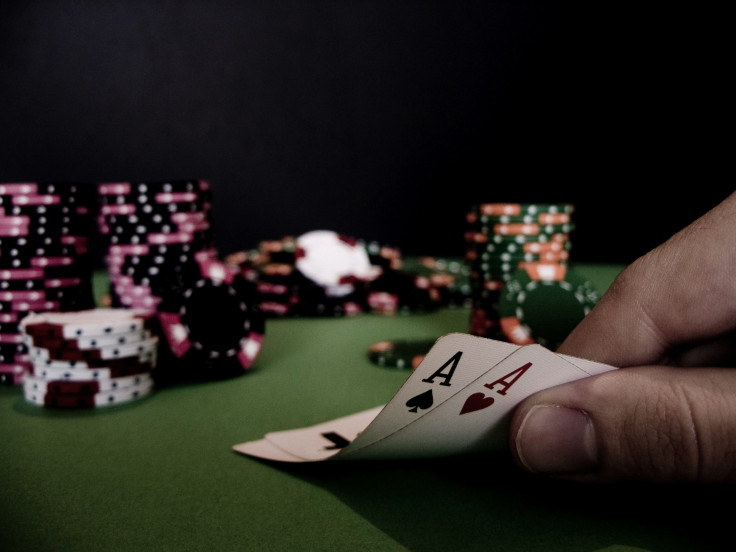Gamblers Who Take Dopamine Supplements More Likely To Take Risks: The Link Between Risk And Reward

Commonly associated with reward learning, the neurotransmitter dopamine may also play a significant role in risk-taking behavior. A recent study, conducted by Robb Rutledge at University College London and published in the Journal of Neuroscience, showed that increasing the level of dopamine led participants to make riskier decisions in a gambling task.
L-DOPA, a psychoactive drug that can be used to create dopamine concentrations, was used in a trial where 30 healthy adults were asked to complete various gambling tasks. Each subject performed the task on two separate occasions — once after receiving L-DOPA and once after receiving a placebo. The tasks required subjects to make choices that led to monetary gains or losses, mimicking real life gambling.
In one of the choices participants faced, they could receive a certain small reward or gamble to win a larger one or nothing at all. In another, they could receive a small loss for certain, or gamble between a large loss and nothing at all. Throughout the entire experiment, participants were repeatedly asked: “How happy are you at this moment?”
The experiment provided results aligned with the traditional view of dopamine as the neurotransmitter most associated with reward. Researchers found that subjects who had received L-DOPA were more likely to take risks to receive a bigger reward, and were likely to do so regardless of how much larger the potential reward was than the safe alternative. When it came to potential losses, however, participants that were given L-DOPA were no more likely to take risks than when they had been given a placebo.
Subjects on L-DOPA reported being happier after receiving a small reward than they were winning the same reward on a placebo. Also, participants on L-DOPA were equally happy about small and large rewards, whereas those who had received the placebo reported being happier about larger rewards.
Researchers proposed that the dopamine drug made potential rewards seem more appealing, but did not do anything to affect perceptions of potential losses. Also, they suggested that L-DOPA might cause similar dopamine releases for all reward levels, which would explain why subjects felt equally happy after receiving both small and large rewards.
These results “may help explain some kinds of gambling and impulse control problems,” said Nathaniel Dew, a neuroscientist at New York University who was not involved in the study. He added that the research sheds some light on dopamine’s effects on decision-making and emotion.



























